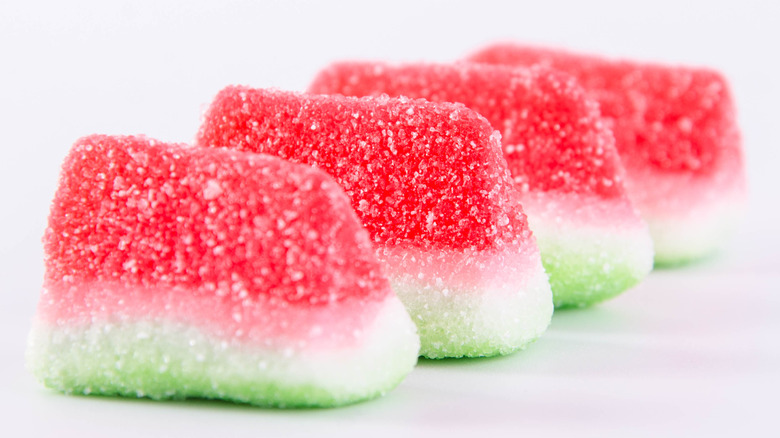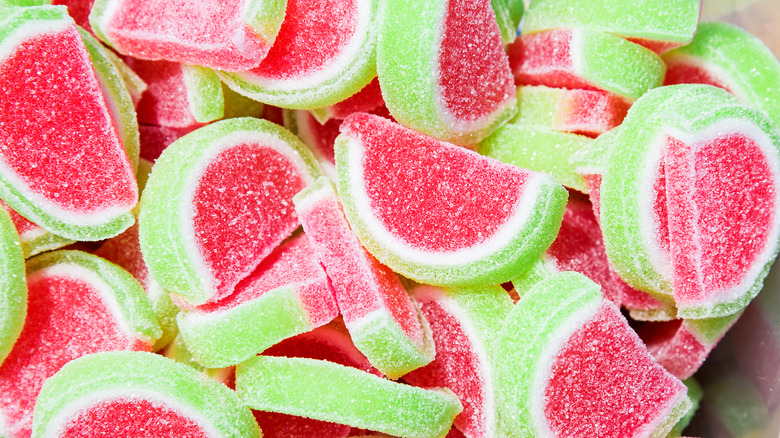The Real Reason Watermelon Candy Doesn't Taste Like Real Watermelon
Watermelon is one of the most refreshing fruits to bite into, especially on a scorching summer's day. Its sweet flavor, succulent flesh, and radiant red hue are what dreams are made of. As a bonus, watermelon is super hydrating and packed with nutrients and antioxidants. This means every single bite is as nourishing as the next (per WebMD).
However, if you pop a piece of watermelon-flavored candy, like a Jolly Rancher or an Airhead, you may experience an entirely different sensation. On average, watermelon-flavored foods, such as hard or gummy candies, are usually either sickeningly sweet or mouth-puckeringly sour. They are a far reach from the actual pink-and-green gourd. As it turns out, most artificially-flavored fruity foods and beverages rarely taste like the real thing. Some people love the zesty characteristics of "fake" watermelon, green apple, grape, or banana, while others detest their synthetic qualities. What's the deal? And how are these polarizing replica flavors created?
Fruit-flavored candy requires complex chemistry
Most fruit candies contain very few, sometimes even zero, traces of real fruit juice (per The Atlantic). The reasons why that is includes limited availability of natural resources, the complex chemistry that goes into the flavoring process, and people's perceptions of how certain foods should taste, according to The World.
According to Popular Science, fruit candy tastes fake because people connect certain flavors with the candy itself. It all boils down to the timing of when these flavors, and the actual fruits, were introduced to consumers. For example, artificial banana flavoring was developed to mimic Gros Michel bananas, which contain more isoamyl acetate — the chemical that gives bananas their emblematic sweet scent — than other varieties. Artificial flavors are created from a blend of additives that attempt to imitate real flavors. According to Dana Gasiorowski, a senior flavorist at International Flavors & Fragrances, using real fruit juices in certain foods would require a huge percentage of the world's supply of that particular fruit (via Bon Appetit). Therefore, chemists identify fruits' multiplex molecular compounds and then concoct a formula made from available lab chemicals. The result is a flavor that is generally identifiable.
In the case of overly acidic-tasting watermelon candy, the fruit's iconic scent and flavor are, plain and simply, extremely difficult to replicate due to the rarity of their main chemical compounds, according to Los Angeles Times. Nevertheless, at the end of the day, candy is candy, and we love it no matter what.

